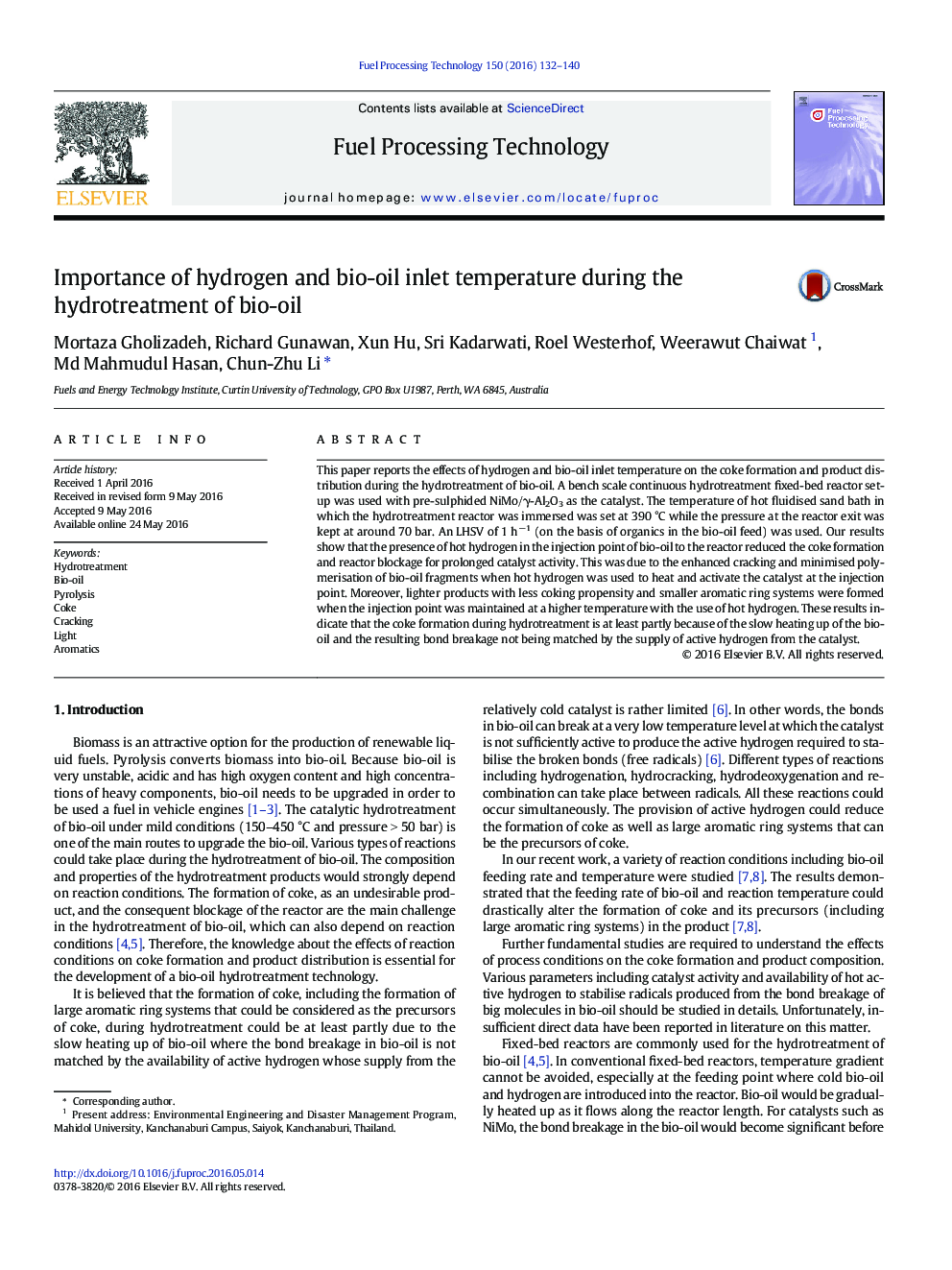| کد مقاله | کد نشریه | سال انتشار | مقاله انگلیسی | نسخه تمام متن |
|---|---|---|---|---|
| 209126 | 461655 | 2016 | 9 صفحه PDF | دانلود رایگان |
• Hydrotreatment of bio-oil in a continuous packed-bed reactor was investigated.
• In the presence of hot hydrogen, less coke was formed during the hydrotreatment of bio-oil.
• The hot hydrogen enhanced the cracking of heavy species in the bio-oil.
• Slow heating up of the bio-oil is partially the reason for coke formation.
• Bond breakage should be matched by active hydrogen to reduce coke formation.
This paper reports the effects of hydrogen and bio-oil inlet temperature on the coke formation and product distribution during the hydrotreatment of bio-oil. A bench scale continuous hydrotreatment fixed-bed reactor set-up was used with pre-sulphided NiMo/γ-Al2O3 as the catalyst. The temperature of hot fluidised sand bath in which the hydrotreatment reactor was immersed was set at 390 °C while the pressure at the reactor exit was kept at around 70 bar. An LHSV of 1 h−1 (on the basis of organics in the bio-oil feed) was used. Our results show that the presence of hot hydrogen in the injection point of bio-oil to the reactor reduced the coke formation and reactor blockage for prolonged catalyst activity. This was due to the enhanced cracking and minimised polymerisation of bio-oil fragments when hot hydrogen was used to heat and activate the catalyst at the injection point. Moreover, lighter products with less coking propensity and smaller aromatic ring systems were formed when the injection point was maintained at a higher temperature with the use of hot hydrogen. These results indicate that the coke formation during hydrotreatment is at least partly because of the slow heating up of the bio-oil and the resulting bond breakage not being matched by the supply of active hydrogen from the catalyst.
Journal: Fuel Processing Technology - Volume 150, September 2016, Pages 132–140
